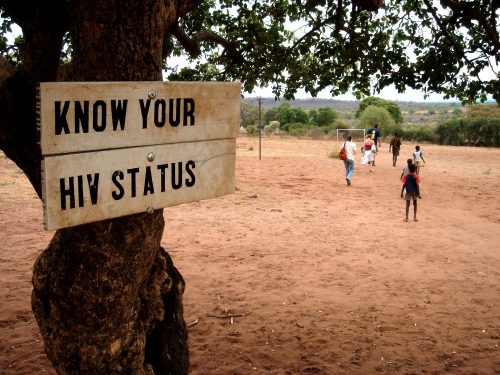Image courtesy of Wikimedia Commons.
While the world focuses on the coronavirus, the need for physical distancing has made access to treatment for other conditions more difficult in some regions. When it comes to HIV, a chronic disease that is only completely manageable when treated, this has become a growing concern.
In 2018, UNAIDS estimated that sub-Saharan Africa was home to over two-thirds of people living with HIV in the world. With the onset of COVID-19, vital services for some people living with the disease have been interrupted––a predicament that could lead to rising HIV-related case rates and fatalities in the future.
To better understand relative long-term impacts of this disruption, a group of researchers from multiple institutions performed a modelling study published in The Lancet. Using five models of HIV epidemics, they studied possible results of decreased accessibility to services including HIV prevention, diagnosis and treatment for six months.
When compared to an undisrupted scenario, the group calculated that a six-month-long interruption in the supply of antiretroviral therapy, which involves taking a combination of at least three drugs to effectively contain the HIV virus, could result in an increase in HIV-related deaths by a factor of 1.63, culminating in a median excess of deaths in the region of 296 000 people. They also estimate that other disruptions, including suboptimal care in light of strained healthcare infrastructure and suspension in testing, could lead to a population-level mortality that is 1.06 times higher than that of the undisrupted scenario.
Studies like these are not only important but necessary. While it is essential that we defeat the coronavirus, people living with other diseases must not be forgotten. Healthcare systems around the work should be elaborating alternative routes of access to treatment, diagnosis and prevention that incorporate adequate safety precautions against the coronavirus.
Source: https://www.thelancet.com/journals/lanhiv/article/PIIS2352-3018(20)30211-3/fulltext#%20

